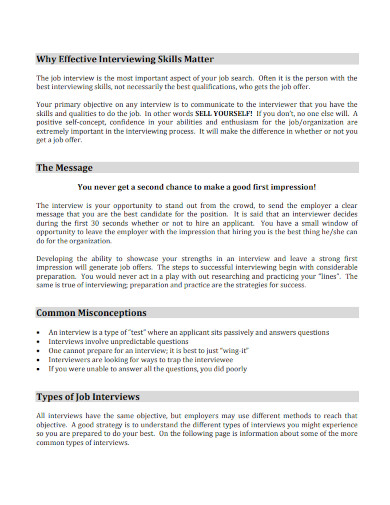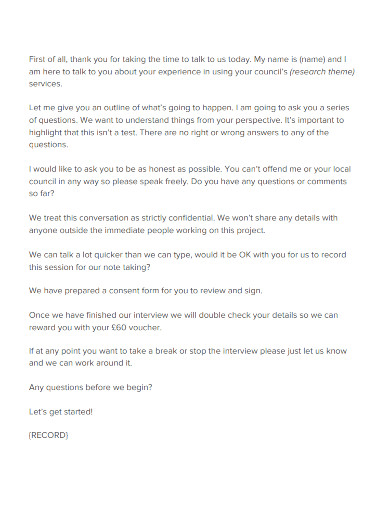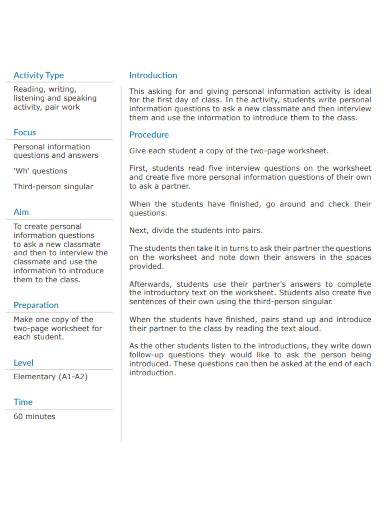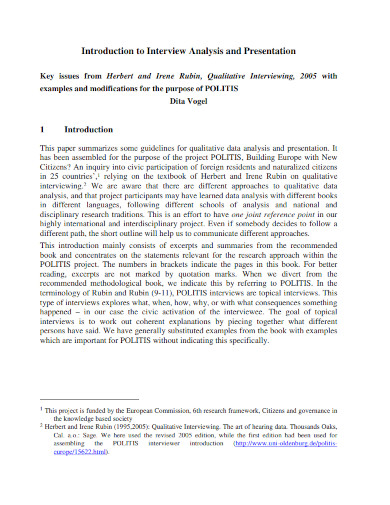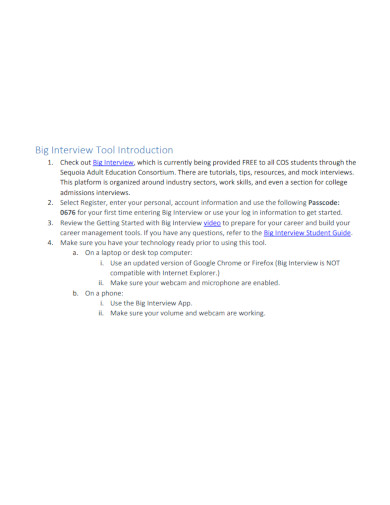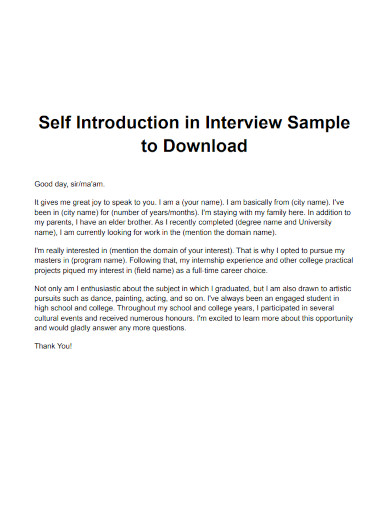When you go out looking for a new job, it is common practice that an employer would want to personally interview you. Not only that interviews are common when applying for a new school, or if you want to migrate to a new country and when there is a need to extract information that only you know. The purpose of an interview is to get first-hand information from the interviewee, and this also gives an interviewer a chance to observe and take note of the interviewee’s behavior.
If you get this kind of opportunity especially if you are applying for something you want, then it is important that you know how to properly introduce yourself. This would be preparing what to say, and how to say it. How you present your interview introduction may leave a lasting impression on the interviewer, so it must be done correctly. To learn more about this, let us discuss this further below. And if you need to start preparing this, we’ve got a list of interview introduction samples that are downloadable for free on this page.
5+ Interview Introduction Samples
1. Interview Training Introduction
2. User Interview Script Introduction
3. First Class Interview and Introduction
4. Interview Analysis Introduction
5. Big Interview Tool Introduction
6. Self Introduction in Interview
What is an Interview Introduction?
Let’s face it, interviews can make us nervous especially if you need to go through a panel of people. But knowing what to say, how you carry yourself and your introduction should help you go through the process efficiently. As mentioned, the very first impression that people get from you is often remembered. This is why you should be to come prepared, meaning take note of several things before coming and take time to practice. Chances are, you will not be interviewed only once, but several times, so whoever you make your introduction to matters as well.
Sometimes, interviewers may include the way you introduce yourself in their ratings which would serve as one factor to hire you. For example, some jobs require a good and eloquent speaker, so hearing you talk and how you formulate a statement is a basis for hiring you. But of course, there are other things an interviewer wants out from your introduction, as this will help them determine other things relevant to the interview.
How to Introduce Yourself in an Interview
Although it is expected that you will be asked to describe or tell the interviewer more about yourself, the way you structure your statements is important depending on what the interview is all about. You do not want to tell your whole life story to someone who is about to hire you, nor do you want to tell anything negative to a school you want to apply in. So the purpose of why you are going to an interview would depend on how you are to create a lasting introduction to your interviewers. So, to get you started we’ve got a couple of tips that can help you make a great and impressive interview introduction.
1. Learn more about the Company or Organization
Having a bit of knowledge about your company or the place you are applying to can be quite useful. Interviewers tend to get impressed if their interviewees know a thing or two about their company. So do some research, understand how the organization works and you may want to incorporate that in your introduction.
2. Dress Appropriately
How you dress and carry yourself can be also one factor that interviewers observe and which may affect your ratings. So when going to an interview make sure to dress appropriately, something that will suit the organization’s culture. It pays to ask the recruiter how you should dress rather than risk wearing the wrong outfit.
3. Rehearse
Before you drop by you should prepare what you should say and how you are able to say it. Rehearsing beforehand in front of a mirror or someone you know can be a big help. You are able to check on your expression, and your companion may give you advice on your body language. This will also help you gain more confidence so you can be more comfortable once you start with the introductions.
4. What to Say
It is common for most introductions to give an overview of your background, your work qualifications, family, interests, educational background, and other relevant details considering the position or the purpose you are applying for. Remember not to make it too short or too long. You must be able to relay enough information that will satisfy the interviewer.
5. Follow-Up Questions
You must anticipate follow-up questions from the interviewer and they may want you to expound on things further. Something like this often piques their interest, this is why they need you to elaborate more. If this happens, remember to stay calm and answer everything as honestly as possible.
6. After the Interview
At the end of the interview make sure to thank the interviewer, shake their hand, and end things on a positive note.
FAQs
How long does an interview last?
Depending on the reason why you are interviewed in the first place, this would normally take around 20-40 minutes.
What is a Self-Introduction?
A self-introduction is when you introduce yourself when someone has not done it on your behalf. Self-introduction usually makes a lasting impression, so make sure you do it correctly.
How many times do you need to be interviewed before you get a job?
Normally you have a 50% chance if you get a second interview. Now this will also depend on the number of candidates who have also passed the first interview.
As they say, ‘first impressions often last’ so it is essential that you are able to prepare yourself, physically and mentally during a first-time interview. Prepare what to say and practice beforehand so you can leave a lasting and positive impression on the interviewer.
Related Posts
Sample Security Guard Resume Templates
Sample Academic CV Templates
Sample Nursing CV Templates
Sample Warehouse Worker Resume Templates
Sample Nurse CV Templates
Sample Resume For College Student
Resume Summary Templates
Medical Student CV Samples & Templates
Fresher Resume Examples
Resume Profile Samples & Templates
Sample High School CV Templates
Sample Resume Templates
Sample Teaching CV Templates
Teacher Resume Templates
FREE 15+ Director CV Samples in MS Word | Pages | PSD | Publisher | PDF

